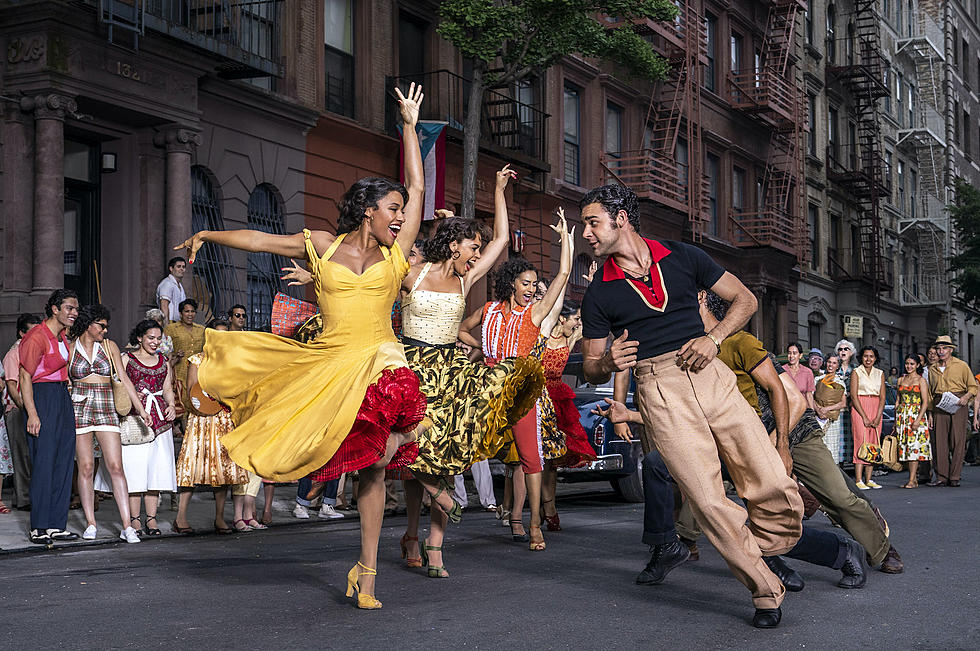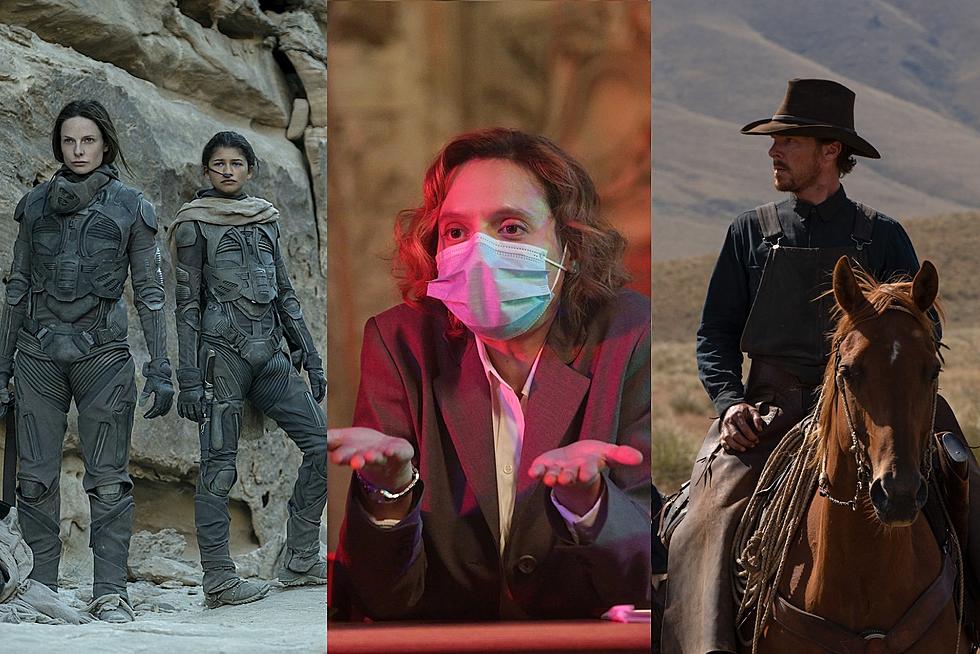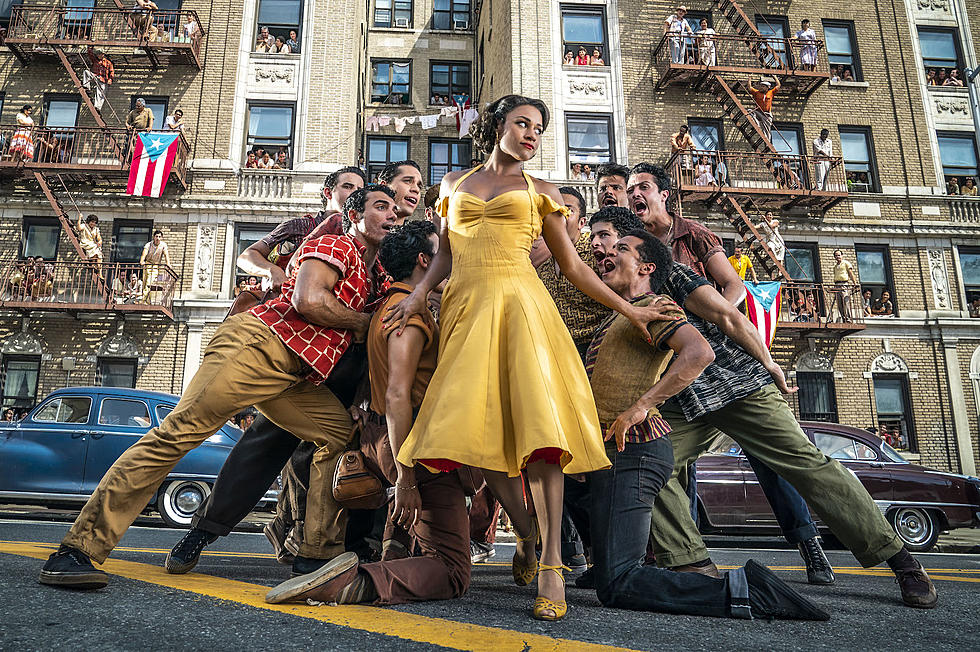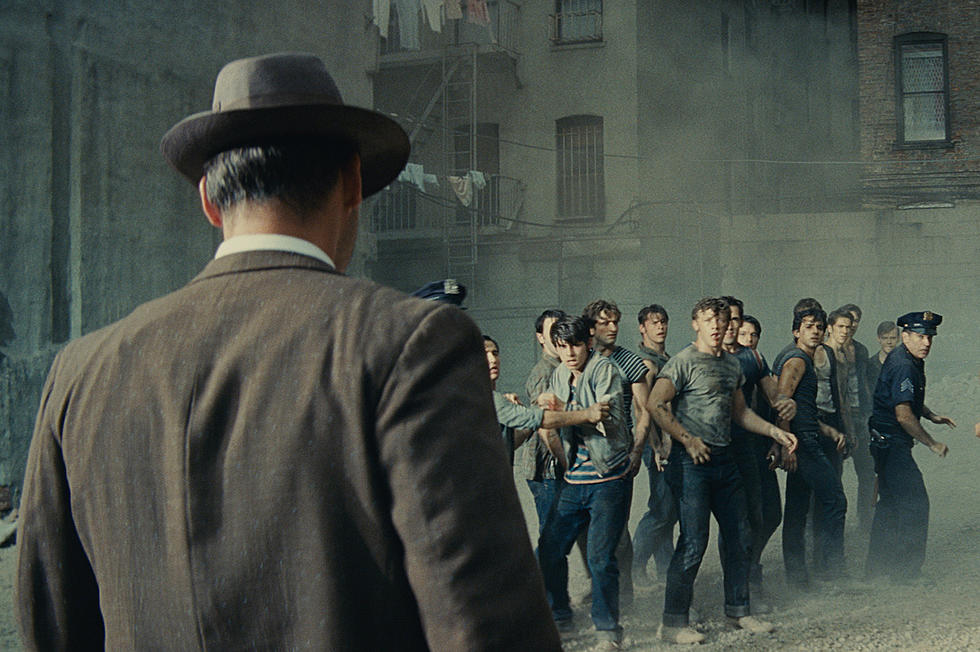
‘West Side Story’ Review: Spielberg Makes a Classic New Again
Steven Spielberg has made lots of different kinds of movies over his 50 year career, but never a musical. At 74, he’s finally directed his first — and not just any musical, but a remake of West Side Story, a signature achievement of the genre, not to mention an high-spirited expression of youthful energy and romance. But while Spielberg has at least half a century on most of its characters, his West Side Story does not feel like the work of an older artist coasting along with a piece of empty nostalgia. His version is vital and vibrant and urgent, full of subtle but important changes that modernize the film’s themes without changing its setting.
As in the original Broadway musical conceived, directed, and choreographed by Jerome Robbins, with music by Leonard Bernstein, lyrics by Stephen Sondheim, and book by Arthur Laurents, and the faithful 1961 film adaptation by Robbins and Robert Wise, the story concerns a feud between rival 1950s street gangs: The white Jets and the Puerto Rican Sharks. Each wants control of their Upper West Side neighborhood. In a witty flourish, Spielberg’s opening shot glides through the rubble of torn-down buildings before landing on a sign advertising the construction of the future Lincoln Center, where Robbins would become one of the key choreographers for the New York City Ballet.
The impending destruction (and subsequent gentrification) of the neighborhood weighs heavily on Tony Kushner’s brilliant script, and adds to the roiling tensions between the Jets and the Sharks, because the turf that they’re fighting over is changing and shrinking beneath their feet. Amidst their conflict, of course, there is also love, as Maria (Rachel Zegler), the younger sister of the Shark leader Bernardo (David Alvarez), meets and falls for Tony (Ansel Elgort), the former head of the Jets who remains close with their current boss Riff (Mike Faist). Tony is freshly out of prison for nearly killing another man, but trying to find his way out of a life of violence. When he spies Maria across the crowded floor of a school dance, the rest of the world melts away and they engage in a quiet duet under the gymnasium bleachers (not a euphemism in this case).
Since West Side Story is based on Romeo & Juliet, Tony and Maria’s bliss is fleeting, as the tensions between the Jets and Sharks continue to come between the young lovers. Spielberg finds visually bold ways to frame all of it, maintaining the original film’s striking use of real New York locations while combining far more dynamic camera movements and crane shots into the musical’s famous dance numbers, most of which you can probably hum from memory: “Tonight,” “Maria,” and the exuberant “America.” The order of some of the songs have been moved; a few have been given new meaning through the use of new locations or timings within the overall story. “Cool,” for example, was originally set in Doc’s Drugstore, and sung by Riff to the Jets while they wait for the Sharks to arrive for a war council. In 2021 it takes place later in the film, and is instead sung by Tony to Riff and the other Jets, warning them against bringing a revolver to the rumble with the Sharks, threading a stronger theme about the danger of guns into the show’s existing motifs about cycles of violence.
Spielberg, and Kushner’s screenplay does that over and over; recontextualizing Robbins, Bernstein, Sondheim, and Laurents’ initial production to tease out the ideas that were always there under the surface. The fight between the Jets and Sharks, for example, is now less about territory than outright racism. (In a fascinating choice, the Puerto Rican characters speak in unsubtitled Spanish.) Spielberg and Kushner’s version also gives a lot more shadings and complexity to the roles of the police officers, who seem a lot less benevolent in the form of Brian d’Arcy James’ Officer Krupke and particularly Corey Stoll’s Lieutenant Schrank, who does not hide the fact that he has a favorite among the two gangs.
The dancing in the new film, choreographed by Justin Peck, evokes Robbins’ graceful movements without simply copying them beat for beat. The dancers themselves are outstanding, including all of the leads. Broadway veteran Ariana DeBose makes an incredible Anita, and Alvarez and Faist do outstanding work as the warring Bernardo and Riff. Everyone provides their own singing, unlike the 1961 West Side Story where several cast members were dubbed by other actors for their musical numbers. Zegler has an especially beautiful voice that shines during her duets with Elgort — who is perhaps not the most charismatic Tony (or the most convincing choice to play a kid from the mean streets of Manhattan who just got out of prison), but does deliver in his songs with Zegler, which are oozing with chemistry.
One of the biggest differences between the 1961 West Side Story and Spielberg’s is also one the few alumni from the original film to work on this one: Rita Moreno, who played Robbins and Wise’s Anita and now plays a new character in the story named Valentina, who replaces Doc in the narrative and serves as the sympathetic ear to both the Sharks and the Jets. Besides providing a lovely connection to the past, and adding more depth to the new West Side Story’s more overt conversation about race, she also sings a moving rendition of “Somewhere.” Its lyrics about a belief in tranquil “place for us,” take on even more haunting dimensions when sung by the now 89-year-old Moreno. Although it’s one of the musical’s quietest moments, it’s the one that brings down the house.
The 1961 West Side Story film is regarded by many as a classic; it won 10 Academy Awards, including Best Picture. Spielberg’s version improves upon the original in almost every way; the performances are stronger, the casting is better, the script is sharper, and the social commentary is more biting. He’s made a musical that feels like it was written about today, not the New York City of the 1950s — much less Renaissance Verona.
RATING: 8/10
10 Famous Movies That Led To Major Lawsuits
More From Sasquatch 92.1 FM








![Is Deadpool & Wolverine Worth A Watch? [REVIEW]](http://townsquare.media/site/165/files/2024/07/attachment-GettyImages-2163119532.jpg?w=980&q=75)

